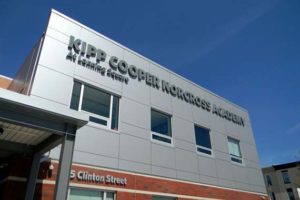By Abigail Suarez, Business Development Officer
A child’s access to education is the stepping stone to a lifetime of successes. Limited or inadequate access can put a child on a path toward a lifetime of struggle. In some communities, access to stellar facilities and a first-rate education is a given. In other communities, it’s a daily struggle against many factors: poverty, crumbling buildings, crime, and lack of resources among them. A community can want its children to have access to a first class education, but without the financial means to build and maintain schools, many places struggle to provide even adequate school facilities. As a mission-driven lender, we have a highly dedicated team working to deliver solutions to a variety of school financing needs.
Our Education Strategy
We know quality education is a cornerstone of a just and equitable society, and that it can change the trajectory of children’s lives. One way we are working to improve education is by supporting high performing schools in low-income communities. Doing so gives students access to schools that deliver excellent educational outcomes, and helps these students achieve their fullest potential.
Our commitment to quality education means continually assessing how we define a quality school. We believe that a high quality school should have the following key components:
• implementation of a rigorous and engaging curriculum and emphasis on education as a pathway to success (including college completion);
• a strong and supportive culture with intentional core values, strong leadership and professional development opportunities;
• a school that facilitates family and community engagement.
Many schools nationwide meet this criteria, and we have worked with several, including schools that follow the KIPP model. In Camden, New Jersey, KIPP Cooper Norcross Academy is a great example of the type of high-quality school we partner with.
Creating Impact with KIPP Cooper Norcross Academy
The situation facing kids in Camden illustrates the need for high performing community schools. Camden is one of the lowest-performing districts in the state, with just 3.2 percent of its public school graduates going on to complete a college education.
New Jersey offers a unique solution: the Urban Hope Act created Renaissance Schools, with the goal of providing additional educational opportunities to students attending chronically failing districts in the State’s urban areas. A Renaissance School is a hybrid between a charter and a traditional district school, with some of the autonomy of a charter but operating as a neighborhood school.
KIPP, a nationwide network of free, open-enrollment college preparatory charter schools in under-resourced communities throughout the United States, was invited into Camden after success with schools in Newark, NJ. The network partnered with the Cooper Foundation – a longtime philanthropic partner in revitalization efforts in Camden’s Cooper Plaza and Lanning Square neighborhoods. In partnership with the Foundation, KIPP was looking to build the first facility under the Urban Hope Act. KIPP approached Capital Impact and our lending partners because of our long history of charter school lending.
KIPP’s vision was compelling.
KIPP Cooper has the capacity to educate 1,100 kids in Kindergarten through middle school. These students are fully immersed in the KIPP educational program, which has been proven to lead to higher test scores and increased college graduation rates when compared to nearby schools. Especially given that the Camden School District is one of the lowest performers in the state, these schools will provide options for students in a city where few options exist. Through its curriculum, KIPP expects it can improve the college graduation rate for the region. Within New Jersey, KIPP high school graduates have a 75 percent college enrollment rate.
In addition to the educational impact, the new facility is having a positive effect on the entire community by serving as an anchor institution supporting the larger revitalization of the surrounding Cooper Lanning neighborhoods. The facility features state of the art classrooms and other educational buildings, two playgrounds, a basketball court, and a sports field. Agreements with community groups allow a wide range of events to be held on campus, and the school’s computer labs are available for public use.
Matching a Big Vision with Creative Financing
The vision for this project was big and exciting, and it presented us with a challenge. Building a new school isn’t easy, and it is expensive. But we have worked with KIPP on other successful schools across the country, and we were ready to tackle this challenge with them. As a mission-driven lender, we saw it as critical to get this deal done for the kids and the community.
We joined forces with two other Community Development Financial Institution (CDFI) lenders – Reinvestment Fund and Low Income Investment Fund – to put together the large financing package that KIPP needed. Collectively, the co-lenders agreed to loan more than $42 million. Our $14.1 million contribution represented the largest loan that Capital Impact has ever handled through traditional financing.
There was also another key partner in this deal. The loan was made possible, in part, through the Treasury Department’s CDFI Bond Guarantee Program (BGP). The BGP was instrumental in allowing the three lenders to provide long-term, low-cost financing that otherwise would not have been possible.
Even with all three lenders on board, the size and scope of the loan meant that finalizing the loan agreement wasn’t easy. For example, KIPP Cooper had to meet more than 100 pre-closing checklist requirements and conditions. Yet, as mission-driven lenders, the social impact that this project would have for this community meant that this was a top-line priority for many Capital Impact staff. For six months we worked closely with our CDFI partners and the KIPP team to work through all of the details.
The due diligence paid off. By the end of that process, KIPP Cooper had met every requirement and the closing went smoothly. Having three lenders meant three sets of loan documents, but we worked together to make sure all three were identical so that there wouldn’t be any holdups or surprises at closing.
This financing package allowed KIPP Cooper to refinance an existing loan and lock in a low rate. Now it can plan for the future, as it knows what its debt payments will be for more than two decades. In addition, it will never face a massive balloon payment or need to refinance the loan.
As Steve Small, KIPP New Jersey’s CFO noted, this kind of financing is important for planning quality programs. “Having access to the long-term capital provides us with affordable financing that allows us to maximize the proportion of our spending that goes directly into the classroom, where it can have the greatest impact on our students. The new 110,000 square foot, world-class facility benefits our students and families as well as the community.”
Catalysts for Camden and Beyond
KIPP Cooper is not just a school. It is a catalyst for the residents of Camden.
It’s one of the first high-quality schools to come in to Camden in many years, and it will trigger a healthy competition encouraging all area schools to do a better job educating students. It has already driven economic growth around the campus. The project created nearly 170 local construction jobs and more than 70 permanent jobs. The project will also serve as an anchor institution that will further support revitalization efforts in the Cooper Lanning neighborhoods.
Everyone involved in this deal hoped it would serve as a framework for future charter school projects, and indeed it has already. Using money from the Bond Guarantee Program, we worked with Chicago-based IFF and got support from the Detroit-based Skillman Foundation to close a $6 million deal for the Detroit Edison Public School Academy. Another deal similar to KIPP Cooper, of roughly the same size and scope, is in the works in Camden.
Our impact was met with another vote of confidence when the Treasury Department approved Capital Impact to receive additional BGP funds in October 2016. This is great news for community-based organizations looking for low-cost, long term capital to finance projects that deliver social impact for those most in need – whether for education or health care, healthy foods, or senior care.
If that is the kind of project you are considering, please don’t hesitate to contact us to discuss your financing options.
[dcwsb inline=”true”]









